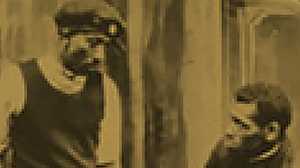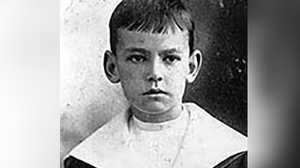Censorship

By the 1920s some but not all theatergoers were eager to see the mature subject matter presented in Eugene O'Neill's plays. Throughout his career, O'Neill faced protests and efforts at censorship over material that some found objectionable and scandalous.
Radical Propaganda?
Controversy first arose with O'Neill's early play The Hairy Ape, a dark look at industrialized society. The FBI noted that the play "could easily lend itself to radical propaganda." About a month after the play opened on Broadway in 1922, a New York newspaper reported that the police department considered the play "obscene, indecent and impure." O'Neill responded: "Such an idiotic attempt at suppression will bring only ridicule on the poor dolts who started it." The objections quickly died down.
The Touchy Issue of Race
After a newspaper noted a "white Actress to kiss Negro's hand" in O'Neill's play All God's Chillun Got Wings, a member of the Salvation Army and the Society for the Suppression of Vice called for the production to cease. A newspaper warned of race riots if the play went on. The company rehearsing the play received threatening letters from the Ku Klux Klan. O'Neill provided a long written response to the controversy, contending that the play dealt with individual human beings, not the "race problem," and that the lead actor, a young African American man named Paul Robeson, was the best person to play the part. "Prejudice born of an entire ignorance of the subject is the last word in injustice and absurdity," wrote O'Neill. Producer Kenneth Macgowan said that All God's Chillun received more publicity than any play in the history of the theater. Under a bomb threat, the play opened with a large police presence at the Provincetown Playhouse on May 15, 1924. The predicted calamities did not happen, other than some bad reviews.
Immoral Production?
With its depiction of a passionate relationship between a young man and his stepmother, O'Neill's Desire Under the Elms outraged New York District Attorney Joab Banton after it opened on Broadway in 1924. Banton targeted other productions at the time, including Ladies of the Evening and The Harem, which he said he would rewrite to make them "moral by Tuesday." But Desire, he said, was "too thoroughly bad to be purified by blue pen," and he threatened to convene a grand jury if the play was not shut down. After the producer refused, Banton created a citizen jury to evaluate the morality of Broadway productions. Upon seeing Desire, the jury reached a verdict that it was not obscene, and the show went on. O'Neill bemoaned the final result. "We got a large audience, but of the wrong kind of people," he said. "They came for dirt and found it in everything. It ruined the actors because they never knew how a line was going to be taken."
Local Censors
The censor's denunciation continued to dog O'Neill into the 1940s. In 1947 the police censor in Detroit shut down the out of town tryout of A Moon for the Misbegotten on the second night, claiming, "The whole theme is obscene. It is a slander on American motherhood." (He objected, for instance, that the word "mother" was used in the same sentence as "prostitute.") In the same period, the Boston censor objected to the production of The Iceman Cometh, citing "unclean" dialogue. Years before, Strange Interlude was also banned in Boston. O'Neill told newspapers that theater audiences didn't want plays weakened "by an ignorant and stupid censorship which knows and cares nothing about drama."
Theater Without Compromise
O'Neill was not the only playwright of the period to be subject to censorship. After Maxwell Anderson's World War I play What Price Glory? opened in 1924, a group of politicians tried to stop production because of its "disrespectful" treatment of the military. Clifford Odets' first work to be produced, the one-act play Waiting for Lefty, about a taxi drivers' strike, met widespread attempts to suppress it. Most of the efforts to censor generated publicity — and popularity — for the productions, and none of the complaints restrained playwrights from continuing to produce provocative work. As one theater scholar of the time wrote: "From 1920 onward, in spite of periodic interference from the police, the vice societies and the church, playwrights were able to treat almost any subject that appealed to them, without compromise and with almost complete frankness."







